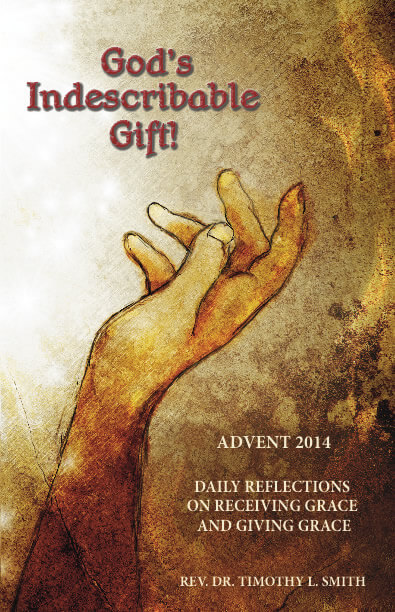
II Corinthians 8:12-15
I’m a last minute, work-best-under-pressure Christmas shopper. That means I haven’t started thinking about Christmas shopping until today. My challenge is I will be shopping for people who tell me they don’t need or want a thing for Christmas. What to get for the American man or woman who has everything! I know I don’t need more stuff.
I’m thinking about my full closets and overflowing pantry as I reflect on today’s Scripture text. Here the apostle Paul expresses profound concern for those who do have need. Paul has never forgotten the charge church leaders in Jerusalem gave as they sent him on a mission to the Gentile Christians: “They asked only one thing, that we remember the poor, which actually I was eager to do” (Galatians 2:10). Yes, “to remember the poor” was at the top of Paul’s priority list. Is it ours this Christmas? Paul fills his letters with pleas for the poor; urgency in collecting funds for them even decides when and where he will travel (Acts 24:17; I Corinthians 16:3-4; II Corinthians 1:15). Caring for the needy was such a priority for Paul that he even postponed missionary outreach for the sake of collecting funds for them (Romans 15:24-28).
Paul taught his congregations to reach out across cultural and geographical divides to care for fellow believers. He believed that as Christians they were brothers and sisters in God’s one large family and had responsibility to care for each other. He appealed to Gentile Christians in Galatia to labor for needy Jewish Christians in Jerusalem: “So then, whenever we have opportunity, let us work for the good of all, and especially for those of the family of faith” (Galatian 6:10). Paul measured the success of a church not by its size, but by its generosity to the poor. Having so richly received from the bounty of God’s grace they must pass it on to others.
In today’s Scripture text Paul is appealing to Corinthian Christians to give so that there may be a “fair balance between your present abundance and their need.” Their “present abundance” is God’s provision for meeting the “need” of others. There is nothing wrong with the Corinthians having more than they need, but they must not forget those who don’t!
Paul bolsters his appeal for generous giving offering Scriptural support from the Old Testament: “As it is written, ‘The one who had much did not have too much, and the one who had little did not have too little.’” He cites God’s design in providing manna for His people to eat in the wilderness (Exodus 16:18): everyone ended up with just what he needed. That is what God intends for the Body of Christ, that everyone has enough.
Just like first century Christians we can reach across divides to care for those with real needs. I am thinking of ways of giving like Food for the Poor, Samaritan’s Purse, Heifer International, and micro-loans on the Internet (check them out!). We can teach our children a “Spend, Give, and Save” allowance policy, and encourage them to donate their time. You might consider calling a family council and seeing what kinds of creative ways you can share with the needy and suffering. There’s also the possibility of going on a short-term mission. God desires “a fair balance between your present abundance and their need.”
REFLECTION
- Paul writes about the importance of “fair balance” between “abundance” and “need”. Where in your life might you see an imbalance?
- Why do you think Paul put giving to the poor at the top of his priority list?
- What different kinds of “poverty” other than physical need do you see around you?



